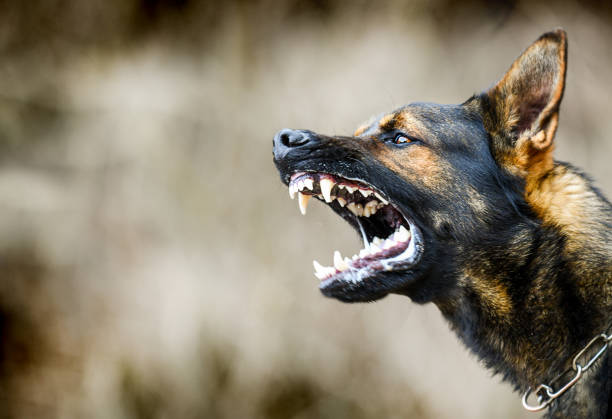Rabies is a very aggressive virus that causes brain inflammation; it can be spread from animals (domestic dogs and wild carnivorous animals) to humans through bites and scratches. Without proper treatment, this disease can be fatal.
The virus is called rhabdovirus and can affect all warm-blooded animals; it is excreted in the saliva of rabid animals; thus, through biting from the infected animal, it can be introduced into the fresh wound. Aside from an open wound, transmission of this virus can also occur if the saliva from an infected animal gets into the eyes, mouths or broken skin of any person or animal.
Then, if the condition is favourable, it moves from the wound through the nerves to the brain and establishes itself in the central nervous system. After some time, the virus spreads to the salivary glands and becomes contagious. It takes about 4 to 6 weeks after infection for this disease to develop in the body, but the incubation period takes about 10 days to 8 months.
The virus enters the brain and causes inflammation, and then coma and death follow swiftly.
There are two types of rabies: furious or encephalitic rabies and paralytic rabies. The first type causes hyperactivity and hydrophobia, while the second type causes paralysis as a dominant symptom.
Symptoms of Rabies
Rabies progresses through 5 stages with different symptoms: incubation, prodrome, acute neurologic period, coma and death.
Incubation Stage
This is the time after the infection and before symptoms start to appear. It usually varies from 1 week to 1 year, depending on the number of viral particles involved and where the virus enters the body. The incubation period will be shorter if the bite is closer to the brain.
Prodrome Stage
In this stage, flu-like symptoms occur, which include:
- Headache.
- Fever of 38°C.
- Anxiety.
- Nausea and vomiting.
- Feeling generally unwell.
- Discomfort at the site of the bite.
- Sore throat.
- Cough.
Acute Neurologic Period
This is a stage where the virus has started causing inflammation in the brain, so you will experience neurologic symptoms, including:
- Partial paralysis.
- Confusion and aggression.
- Convulsions.
- Involuntary muscle twitching.
- Frothing at the mouth.
- Photophobia or fear of light.
- Rigid neck muscles.
- Hypersalivation.
- Hyperventilation.
- Fear of water, or hydrophobia.
- Permanent erection in males,
- Hallucinations, nightmares, and insomnia.
- Rapid and inconsistent breathing.
Coma and Death
When rabies progresses from the 3rd stage, it may lead to coma and death within 3 days. Once it gets to this stage, there’s no more hope of survival, even with life support.
Treatment
When there is a bite or scratch from an animal that may have rabies, the affected area should be washed with soapy water, detergent or povidone-iodine to minimise the number of viral particles, then seek medical attention immediately. During the incubation phase, before symptoms begin, a series of shots can help treat the infection. Whether the animals have rabies or not, it is safer to assume they do and begin treatment or vaccination.
If the patients start having symptoms before seeking medical attention, there is, unfortunately, no effective treatment that can help. Healthcare providers usually try to make such patients comfortable with breathing assistance when needed. Only a few people survive rabies after getting to this stage.
However, the rabies vaccine is not available for routine use. Instead, it is offered to those exposed to the infection through bites or scratches or those at high risk of exposure to the virus, such as health workers and people likely to receive animal bites.



